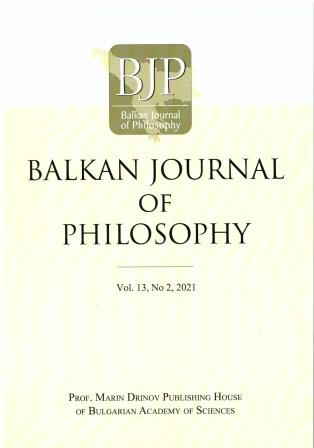Platonism and Mathematical Explanations: Some Critical Remarks on Explanatory Proofs and Debunking Arguments (II)
Platonism and Mathematical Explanations: Some Critical Remarks on Explanatory Proofs and Debunking Arguments (II)
Author(s): Fabrice PatautSubject(s): Philosophy, History of Philosophy, Special Branches of Philosophy, Philosophy of Science
Published by: Институт по философия и социология при БАН
Keywords: Abstract Objects; Clarke-Doane (Justin); Colyvan (Mark); Conservativity; Debunking Arguments; Explanatory Proof; Field (Hartry); Indis-pensability Argument; Inference to the Best Explanation;
Summary/Abstract: Ontological parsimony requires that if we can dispense with A when best explaining B, or when deducing a nominalistically statable conclusion B from nominalistically statable premises, we must indeed dispense with A. When A is a mathematical theory and it has been established that its conservativeness undermines the platonistic force of mathematical derivations (Field), or that a non numerical formulation of some explanans may be obtained so that the platonistic force of the best numerical-based account of the explanandum is also undermined (Rizza), the parsimony principle has been respected. Since derivations resorting to conservative mathematics and proofs involved in non numerical best explanations also require abstract objects, concepts, and principles under the usual reading of “abstract,” one might complain that such accounts turn out to be as metaphysically loaded as their platonistic counterparts. One might then urge that ontological parsimony is also required of these nominalistic accounts. It might, however, prove more fruitful to leave this particular worry to the side, to free oneself, as it were, from parsimony thus construed and to look at other important aspects of the defeating or undermining strategies that have been lavished on the disposal of platonism. Two aspects are worthy of our attention: epistemic cost and debunking claims. Our knowledge that applied mathematics is conservative is established at a cost, and so is our knowledge that nominalistic proofs play a genuine theoretical role in best explanations. I will suggest that the knowledge one must acquire to show that nominalistic deductions and explanations do indeed play their respective theoretical role involves some question-begging assumptions regarding the nature and validity of proofs. As for debunking, even if the face value content of either non numerical claims, or conservative mathematical claims, or platonistic mathematical claims didn’t figure in our causal explanation of why we hold the mathematical beliefs that we do, construed or understood as beliefs about such contents, or as beliefs held in either of these three ways, we could still be justified in holding them, so that the distinction between nominalistic deductions or non numerical explanations on the one hand and platonistic ones on the other turns out to be spurious with respect to the relevant propositional attitude, i.e., with respect to belief.
Journal: Balkan Journal of Philosophy
- Issue Year: XIII/2021
- Issue No: 2
- Page Range: 113-122
- Page Count: 10
- Language: English

